
Assistant Language Teacher quickly learns that Japanese doesn’t always translate properly into English.
If you’ve ever learnt another language, you’ll know the road to fluency isn’t an easy one — it’s a bumpy path scattered with roadblocks that threaten to trip you up if you’re not careful. Still, the only way to get to your end goal is by making mistakes and learning from them, and sometimes those mistakes are so memorable you’ll never make the same ones again.
That’s certainly what Japanese Twitter user Seaside (@seaside_rs) found when they started out learning English many years ago. Proving how easily language errors can be made, Seaside shared a funny anecdote from English class at junior high school, which befuddled the foreign ALT at the time (ALTs are “Assistant Language Teachers” who come from abroad to help teach English in Japanese schools).
▼ Seaside’s tweet (translation follows) recently went viral as other English-language learners easily related to the story.
中学の時の英語の時間に、富山の有名なものを英語で紹介してっていうお題が出されたから、売薬さんを紹介しようとして
— seaside (@seaside_amie) September 4, 2020
「富山は古くからのドラッグの街として知られ、特に富山のドラッグディーラーは有名です」
って言ったのよ。天才なので。
その時のALTの死ぬほど引きつった愛想笑いは忘れられない。
“When I was in junior high school, during English time, I was asked to make a presentation about famous things from Toyama in English. I thought I would make a presentation about druggists so I said, ‘Toyama has long been known as a drug district; Toyama’s drug dealers are especially famous.’ Because I’m a genius. I’ll never forget the ALT at the time giving me a smile so forced it looked like they were going to die.”
Seaside’s story is especially amusing as these “introduction to the prefecture” lessons often take place when the ALT has just arrived at the school, to help them get to know their new surroundings better. This ALT, who probably just started living in Toyama, was likely reconsidering their life choices after hearing about Toyama’s fame as a drug-dealing precinct.
However, the ALT’s polite smile would’ve been the result of some confusion, considering the gusto and pride with which the student was praising the prefecture’s drug dealers. Thankfully, Seaside says the Japanese teacher of English was there to clear up the misunderstanding immediately, explaining to the ALT that the student wasn’t talking about illegal drugs.
So what exactly went wrong here? Well, there’s a bit to unpack behind the language hiccup, including the history of Toyama, the use of the word “drug” in Japan, and a few cultural and linguistic factors along the way.
Of course, as you’ve probably guessed, Seaside wasn’t talking about those types of drug dealers — they were simply introducing the ALT to the prefecture’s famous history of 薬種商 (yakushushou), which literally translates into English as “drug dealers” (even with Google Translate) but really refers to “medicinal dealers”.
▼ This Toyama museum preserves old pharmaceutical materials inside the former residence of Kanaoka Matazaemon, who made a fortune as a “drug dealer” in the late Edo period (1603-1868).
Seaside says the English gaffe occurred about 15 years ago, back when “medicinal dealers” differed slightly from pharmacists as they were able to sell slightly less powerful medicines. So while “drug dealers” wasn’t technically wrong, the meaning definitely got lost in translation.
Seaside wan’t technically wrong in saying that “Toyama has long been known as a drug district” either, as the prefecture really does have a long and proud history of pharmaceutical production that stretches back over 300 years. Toyama’s medicines first became famous throughout the country when Masatoshi Maeda, the second feudal lord of the domain of Toyama began a drug delivery business catering to people around Japan in the late 1600s.
Back then, “drug deliverers” would travel to customers’ houses and leave a year’s supply of traditional medicines in a box at their home, returning the following year for payment on used medicines. Today, Toyama’s traditional medicine practitioners are still active in the area, and pharmaceutical production remains the key industry in the prefecture, so if you think about it, Toyama really is a famous “drug district”, but it’s not those kinds of drugs they specialise in.
▼ Local pharmaceutical company Kokando was founded in Toyama in 1876.
Another reason why Seaside chose to use the word “drug” instead of a word like “pharmaceuticals” or “medicine” is due to the fact that “drug” is often understood as referring to medicines in Japan, as it’s the shortened form of “drugstore“, which is also commonly used here in the same way as it’s used in the U.S.
While medicines are known as “kusuri” (薬) in Japanese, the fact that “drug” is written in katakana — as ドラッグ (“doraggu”) — suggests it’s a loan word that comes from abroad and therefore is commonly used to refer to the “drug” in “drugstore”, and not illegal substances.
▼ This drugstore chain is called “Drug Seims”.
So when speaking to a foreigner, a Japanese person would naturally be inclined to use the katakana word for “drug” instead of the Japanese word “kusuri” to say “medicine”. From this point of view, it’s easy to see why many Japanese learners of English would think that the word “drug” simply means “medicine” in English and has no relation to illicit substances.
Oh, and if you’re wondering what the word for illicit drugs is in Japanese, it’s “ihou yakubutsu” (literally “illegal drugs”). However, it’s possible for Japanese learners to trip up on the word for drugs in Japanese too, as the 薬 kanji can be read in two ways: as “kusuri” to mean “medicine” and as “yaku” when it’s being used as a slang term for illegal drugs.
It just goes to show how difficult language-learning can be, no matter what language you’re learning. However, as long as you’re able to laugh at yourself and have a sense of humour about it all, like Seaside, the journey can end up being a fun and memorable one along the way — even if you’re tasked with having to learn the kanji with the longest readings and the top five most difficult kanji ever.
Oh, and if the ALT in this story was you or someone you know, we’d love to hear from you so we can reconnect the teacher with their former student. Seaside would be happy to provide you with an update on the famous drugs and drug dealers in Toyama today!
Source: Twitter/@seaside_rs via Hachima Kikou
Featured image: Pakutaso
Insert images: Wikipedia/Louveteau sfm, Wikipedia/ネプチューン, Flickr/S Higashi (edited by SoraNews24)
● Want to hear about SoraNews24’s latest articles as soon as they’re published? Follow us on Facebook and Twitter!

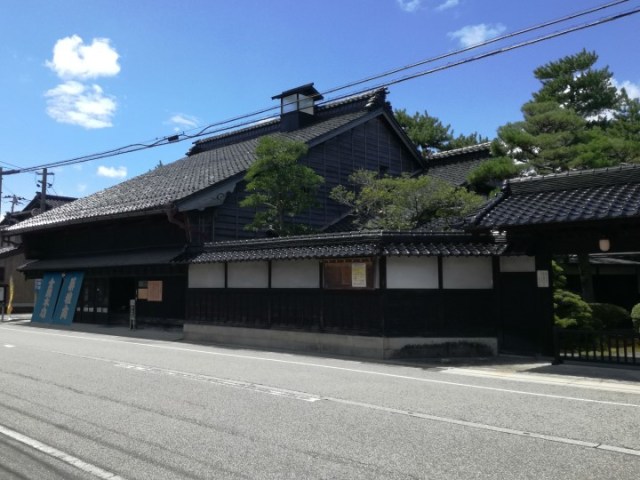
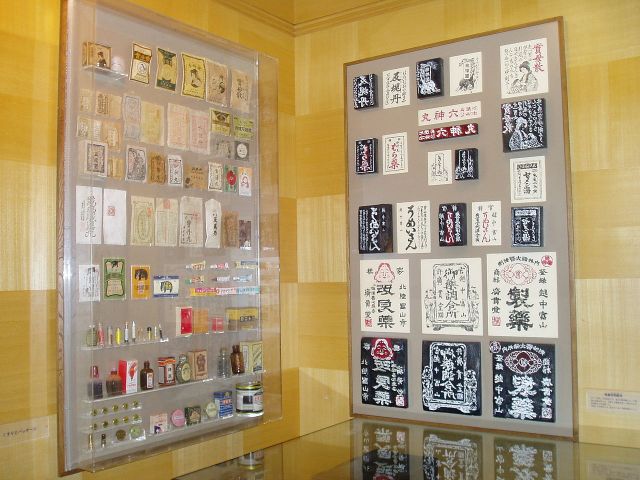
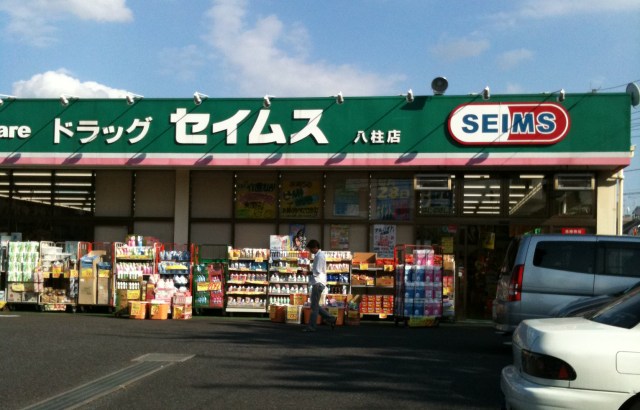
 ALT in Japan asked to remove earrings by Board of Education
ALT in Japan asked to remove earrings by Board of Education The reason why Japanese students don’t pronounce English properly
The reason why Japanese students don’t pronounce English properly Foreign English teacher in Japan calls student’s ability garbage, says it was an “American joke”
Foreign English teacher in Japan calls student’s ability garbage, says it was an “American joke” American English teacher fired from Japanese high school after exposing genitals
American English teacher fired from Japanese high school after exposing genitals Japanese student’s English homework captures futility of life
Japanese student’s English homework captures futility of life Is China’s don’t-go-to-Japan warning affecting the lines at a popular Tokyo gyukatsu restaurant?
Is China’s don’t-go-to-Japan warning affecting the lines at a popular Tokyo gyukatsu restaurant? Huge Evangelion Unit-01 head appearing in lights in Japan to celebrate anime’s 30th anniversary
Huge Evangelion Unit-01 head appearing in lights in Japan to celebrate anime’s 30th anniversary Cosmetic wizardry: Asian women removing makeup to reveal their true selves goes viral【Video】
Cosmetic wizardry: Asian women removing makeup to reveal their true selves goes viral【Video】 Nephew receives SD card after his uncle passes away, finds treasure trove of gems from the past
Nephew receives SD card after his uncle passes away, finds treasure trove of gems from the past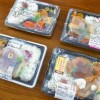 We taste makunouchi bento at four Japanese convenience store chains【Taste comparison】
We taste makunouchi bento at four Japanese convenience store chains【Taste comparison】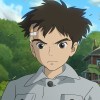 Studio Ghibli releases new free-to-use anime images to “use within the bounds of common sense”
Studio Ghibli releases new free-to-use anime images to “use within the bounds of common sense” Studio Ghibli adds “komorebi” Totoro plush toys to its anime merchandise range in Japan
Studio Ghibli adds “komorebi” Totoro plush toys to its anime merchandise range in Japan A spotlight on Japanese singles figure skating: Jumping into the 2026 Olympics【Pt. II】
A spotlight on Japanese singles figure skating: Jumping into the 2026 Olympics【Pt. II】 Japanese police question man for “not looking good in a suit,” turns out he robbed an old lady
Japanese police question man for “not looking good in a suit,” turns out he robbed an old lady “Office lady in heels walking on tatami”: The mysterious world of Japanese fetishism
“Office lady in heels walking on tatami”: The mysterious world of Japanese fetishism Yokai are descending upon Tokyo this spring in the latest immersive art experience
Yokai are descending upon Tokyo this spring in the latest immersive art experience New Studio Ghibli stamps leave an impression on your stationery…and your heart
New Studio Ghibli stamps leave an impression on your stationery…and your heart Cherry blossom forecasts map shows Japan’s OTHER sakura season is starting right now
Cherry blossom forecasts map shows Japan’s OTHER sakura season is starting right now Three beautiful places to see Japan’s plum blossoms after starting your day in downtown Tokyo
Three beautiful places to see Japan’s plum blossoms after starting your day in downtown Tokyo Japanese women sound off on their minimum height requirements for a husband【Survey】
Japanese women sound off on their minimum height requirements for a husband【Survey】 Japanese man gets drunk and falls asleep on Tokyo streets, then gets robbed by foreign national
Japanese man gets drunk and falls asleep on Tokyo streets, then gets robbed by foreign national Japan has a new bar just for people thinking about quitting their jobs, and the drinks are free
Japan has a new bar just for people thinking about quitting their jobs, and the drinks are free 420 million yen in cash-filled suitcases stolen on Tokyo streets, incidents at Haneda and Hong Kong follow
420 million yen in cash-filled suitcases stolen on Tokyo streets, incidents at Haneda and Hong Kong follow Japan’s suicides fall to lowest recorded number ever, but one demographic hits all-time high
Japan’s suicides fall to lowest recorded number ever, but one demographic hits all-time high Starbucks Japan releases new drinkware and goods for Valentine’s Day
Starbucks Japan releases new drinkware and goods for Valentine’s Day Japan releases first official sakura cherry blossom forecast for 2026
Japan releases first official sakura cherry blossom forecast for 2026 10 times to avoid traveling in Japan in 2026
10 times to avoid traveling in Japan in 2026 Archfiend Hello Kitty appears as Sanrio launches new team-up with Yu-Gi-Oh【Pics】
Archfiend Hello Kitty appears as Sanrio launches new team-up with Yu-Gi-Oh【Pics】 Starbucks Japan releases new Frappuccino and latte for Valentine’s Day
Starbucks Japan releases new Frappuccino and latte for Valentine’s Day China’s don’t-go-to-Japan warning looks to be affecting tourist crowds on Miyajima
China’s don’t-go-to-Japan warning looks to be affecting tourist crowds on Miyajima Our 52-year-old pole dancing reporter shares his tips for achieving your New Year’s exercise goal
Our 52-year-old pole dancing reporter shares his tips for achieving your New Year’s exercise goal Studio Ghibli releases new “komorebi” plush toys from Princess Mononoke and Spirited Away
Studio Ghibli releases new “komorebi” plush toys from Princess Mononoke and Spirited Away Ramen restaurant’s English menu prices are nearly double its Japanese ones, denies discriminating
Ramen restaurant’s English menu prices are nearly double its Japanese ones, denies discriminating Survey asks foreign tourists what bothered them in Japan, more than half gave same answer
Survey asks foreign tourists what bothered them in Japan, more than half gave same answer Japan’s human washing machines will go on sale to general public, demos to be held in Tokyo
Japan’s human washing machines will go on sale to general public, demos to be held in Tokyo We deeply regret going into this tunnel on our walk in the mountains of Japan
We deeply regret going into this tunnel on our walk in the mountains of Japan Studio Ghibli releases Kodama forest spirits from Princess Mononoke to light up your home
Studio Ghibli releases Kodama forest spirits from Princess Mononoke to light up your home Major Japanese hotel chain says reservations via overseas booking sites may not be valid
Major Japanese hotel chain says reservations via overseas booking sites may not be valid Put sesame oil in your coffee? Japanese maker says it’s the best way to start your day【Taste test】
Put sesame oil in your coffee? Japanese maker says it’s the best way to start your day【Taste test】 No more using real katana for tourism activities, Japan’s National Police Agency says
No more using real katana for tourism activities, Japan’s National Police Agency says Starbucks Japan reveals new sakura drinkware collection, inspired by evening cherry blossoms
Starbucks Japan reveals new sakura drinkware collection, inspired by evening cherry blossoms Updated cherry blossom forecast shows extra-long sakura season for Japan this year
Updated cherry blossom forecast shows extra-long sakura season for Japan this year Japanese student teased for American pronunciation gets sweet revenge on classmates
Japanese student teased for American pronunciation gets sweet revenge on classmates English teachers in Japan apologize for having low-proficiency kids say “poison” in assigned video
English teachers in Japan apologize for having low-proficiency kids say “poison” in assigned video Japanese elementary school student teaches us all how to pronounce English like a native speaker
Japanese elementary school student teaches us all how to pronounce English like a native speaker Japanese students learn English with help from a dating sim artist
Japanese students learn English with help from a dating sim artist Over half of Japanese students in nationwide test score zero percent in English speaking section
Over half of Japanese students in nationwide test score zero percent in English speaking section Japanese student writes to Arnold Schwarzenegger for English class, gets awesome reply in return
Japanese student writes to Arnold Schwarzenegger for English class, gets awesome reply in return
Leave a Reply